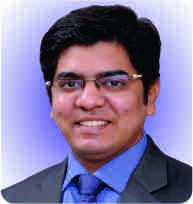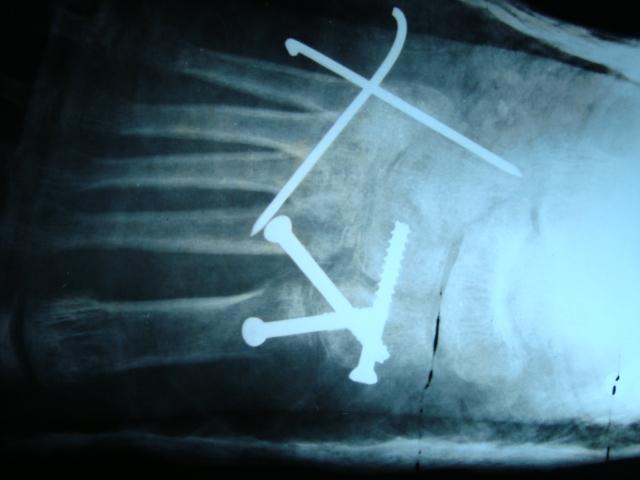Editorial
Case Report | Volume 5 | Issue 3 | JOCR July-Sep 2015 | Page 1-2 | Shyam AK. DOI: 10.13107/jocr.2250-0685.291
Bias and the Evidence ‘Biased’ Medicine
Author: Ashok Shyam Editor – Journal of Orthopaedic Case Reports. Email: drashokshyam@yahoo.co.uk
Bias has been the Judas of research methodology, nobody likes it and every attempt is made to eliminate it. Evidence based Medicine (EBM) has been built on the cornerstone of eliminating bias. Bias is stated in various ways but definition I would prefer is that it is “a tendency that prevents unprejudiced consideration of a question” [1]. A body of literature exists about the technicalities of bias, its classification and how they influence the conclusions. Rather than going into those details, I would like to take a more epistemological view of bias, so we can have a more practical view of understanding it and not merely condemning it to various purgatories.
One of my basic understandings of the world is that everyone, especially humans, we are conceptual beings. We learn from our experiences and also from experiences of others and form concepts about our world and surroundings. These concepts form our world views, our views of society and people down to every individual we interact with. This is however a dynamic view which is in a constant flux, with new data changing concepts and at ties completely replacing the other. I believe it is quite safe to assume that these concepts are our individual prejudices and that these affect every aspect of our lives. These prejudices may have different quality and strength from being completely flexible to absolute ones written on stone tablets, but the truth is that they exist everywhere and are part of every interaction in our lives. I believe being unprejudiced is a quality that is not only very rare but most of the time it is fake. A person who says he is unprejudiced is either lying or has a strong prejudice of being unprejudiced. My point in elaborating this in rather philosophical terms to bring to your notice that we at core are prejudiced and nothing is our lives is unprejudiced and so is our interaction with our patients. I believe clinical medicine is a completely biased entity and we clinicians treat our patients based on our individual bias. I do not think this bias is bad, in fact on the contrary I believe this is a good bias. We clinicians are always biased to offer best treatment to our patients to best of our ability and training. I have never encountered a clinicians who will deliberately do harm to a patient. That doesn’t mean everyone offers ‘the’ best treatment. The best treatment in an individual case will depends on many parameters including patient’s preferences, socio-economic-politico-religious beliefs, and the infrastructure, literature and clinicians skills. A clinician has to weigh all these and I believe there is no ‘unprejudiced’ way of doing this.
The image and understanding of bias in research has to be relooked. If the aim of research is to benefit and improve patient care, the concepts of bias in clinical research has to be reviewed. It’s clear that we practice clinical medicine which is biased, the question is can we base it on clinical research which is unbiased? Why can clinical research be biased? An Evidence Biased Medicine. I would explain it with an example, say a comparison between surgery A and Surgery B. The trial is conducted as a single surgeon trial, where the surgeon himself is expert in surgery B and not so much in surgery B. A randomised controlled trial was conducted and as expected the results says Surgery B is better than Surgery A. Do you think this is an unprejudiced result? I believe the interpretation of the study is quite biased (contrary to the claim made by RCT’s). The correct interpretation should be ‘if a surgeon is well trained in Surgery B, his results would be better than Surgery A”. It does not mean Surgery A is less effective than Surgery B, it simply reflects the bias of surgeons training. Many EBM based trials, especially in surgical field, suffer from this ‘unprejudiced’ interpretations. But then there is also a question of how to measure the expertise and convert it into a quantifiable outcome measure. In this sense many factors like patient’s preferences, infrastructure, socio-economic factors etc cannot be converted into quantifiable outcome measure in EBM. Thus although EBM says it tries to combine patient preferences, clinical expertise with Best research but it has failed to show a method on how to marry these two [even after 25 years]. Even today the only way patient preferences, clinical expertise and best evidence are combined through personal ‘Bias’ of the Clinicians. I would not agree with the slogan of EBM that discredits clinician’s expertise as I believe it is the only method through which meaning is extracted from research. Our guest editorial by Daniel Ryan to echoes the same concept about importance of case reports and expert clinicians [2].
In short the point I am making is that personal ‘Bias’ is an important aspect of clinical decision making. Guidelines that attempt to base themselves on rigid ‘unprejudiced’ EBM framework have to be reviewed to make them applicable to ‘Real’ world. Else they have to be looked upon simply as what they are ‘guidelines’ and not dictums to be followed rigidly. EBM studies are not to be taken as sacred but have to be open to interpretations and opinions. Also I believe the conclusions of each study have to be framed along with the major confounding factors and have to be individualised to each study [and not generalised to an entire population of patients; irrespective of 95% confidence]. Clinicians should be given complete liberty to follow the logical, rational and scientific conclusions rather than simply made to follow statistical conclusions.
Dr Ashok Shyam
Editor- Journal of Orthopaedic Case Reports
Email: drashokshyam@yahoo.co.uk
References
1. Pannucci CJ, Wilkins EG. Identifying and avoiding bias in research. Plast Reconstr Surg. 2010 Aug;126(2):619-25.
2. Daniel R. Case reports – their value in training. J Orthopaedic Case Reports 2015; 5(3): 3-4
| How to Cite This Article: Shyam AK. Bias and the Evidence ‘Biased’ Medicine. Journal of Orthopaedic Case Reports 2015 July-Sep;5(3):1-2. Available from: https://www.jocr.co.in/wp/wp-content/uploads/4.-2250-0685.291-Editorial2.pdf |
[Full Text HTML] [Full Text PDF] [XML]
[rate_this_page]





